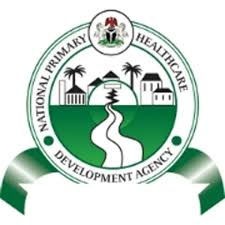The National Primary Healthcare Development Agency (NPHCDA) has introduced key reforms to the Basic Healthcare Provision Fund (BHCPF) aimed at enhancing accountability, improving service delivery, and ensuring value for money across Nigeria’s primary healthcare system.
Speaking in Abuja, Executive Director of the NPHCDA, Dr. Muyi Aina, said the reforms are part of ongoing efforts to revitalise the country’s health sector and advance President Bola Tinubu’s healthcare priorities.
A major component of the reform is the nationwide deployment of 774 Performance and Financial Management Officers (PFMOs), one in each local government area. These officers will provide oversight at primary health centres, independently verify financial and programme activities, and ensure compliance with performance standards.
To support this, the NPHCDA partnered with Innovious Nigeria for the recruitment and coordination of the officers, who have been trained and are now operational across the 36 states and the Federal Capital Territory (FCT).
“This is not just a policy; it is a transformational effort aimed at securing the future of healthcare in Nigeria, where young people not only participate but lead,” Aina said.
As part of broader reforms, over 60,700 health workers have been retrained, while health centres are being upgraded with solar power, modern equipment, and improved infrastructure. Aina noted that over 1,000 PHCs have already been revitalised, with another 2,500 underway across several states.
Meanwhile, the NPHCDA also flagged off a workshop in Abuja to relaunch its redesigned Community-Based Health Workers programme. Themed “Optimised Community Health Workforce: Key to Strengthening PHC and Achieving Universal Health Coverage,” the initiative aims to improve healthcare access in rural and underserved areas by formalising and strengthening the role of community health workers.
Aina stressed the importance of these workers in bridging the gap between healthcare facilities and communities, especially in hard-to-reach areas.
“We cannot reach every doorstep without bringing community health workers on board. They are the critical link between health facilities and the people,” he said.
Supporting the initiative, World Health Organization (WHO) Health Economist Dr. Francis Ukwuije emphasised the importance of ethics, dignity, and efficiency in healthcare. “The appointment of PFMOs is commendable,” he said.
Dr. Onoriode Ezire of the World Bank also praised the initiative, comparing it to the earlier Nigeria State Health Investment Project (NSHIP), but with more focused goals. He underscored the need for continuous technical support to empower health workers in planning, accounting, and leadership.
Health workers from states like Niger and Kogi also testified to visible improvements in their centres, citing better drug supply, financial transparency, and more responsive staff as direct outcomes of the PFMO support.
Dr. Oyebanji Filani, Chairman of the Health Commissioners Forum, said the reforms reflect increased collaboration among federal, state, and local governments. “We’re working with the Nigeria Governors’ Forum and ALGON to ensure the reforms are adapted to local contexts,” he added.
Other key stakeholders—including WHO, World Bank, Global Fund, and UNICEF—also expressed support for the initiative, describing it as both innovative and impactful.
In recognition of efforts to improve healthcare workforce welfare, Aina acknowledged the contribution of First Lady Senator Oluremi Tinubu, who donated over 60,000 uniforms and kits to midwives across Nigeria’s six geopolitical zones.
Edited by Nzubechukwu Eze









